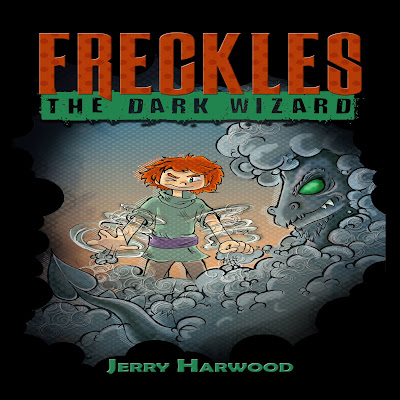Let's get something on paper!
First, in the writing world there are two recognized groups (with lots of people in the middle). There are the PLOTTERS, people who outline and script out everything before they put pen to paper. Then there are PANTSERS, as in "by the seat of my pants" writers who just jump in and see where the story goes.
Which are you? You probably already know. Either way - this is a fun quiz:
https://www.writinglaraferrari.com/plotter-or-pantser-quiz
Knowing which you are is helpful so you will know the inerant pitfalls:
PLOTTERS TEND TO:
- struggle to start because the outline isn't perfect
- develop intricate worlds and character backstories that bog down the story
- continually work hard at the craft of writing but not on actual writing.
- write with expertise but lose the initial passion of their idea
PANTSERS TEND TO:
- have many story starts but bog down in the middle
- struggle with complex stories that involve remembering facts (was that guy's name Johnson or Johns?)
- write with energy and fail when energy fades
For clarity, these are my opinions with no real statistics to back up what I'm saying. However, according to good reads (Don't know goodreads? You should go start a profile today!!) J. K. Rowling is a plotter. It shows. Every character and every space in her world is filled with backstory and wonder. There is a reason they make a Harry Potter world theme park. On the other side, they list Stephen King as a pantser. There are no theme parks based on the master of horror. He places some interesting characters in a "What if?" situation and lets it roll. both are incredible authors. So do not think of Plotter and Pantser as "good" and "bad." Know which one you are and embrace it. Then plan to overcome your type's shortcomings.
SIGNPOST MODEL:
I prefer what Gregory Scott Bell calls the signpost model. This is a great model for pantsers. It is not a full plot outline. Rather, you focus on character development and then have "road signs." On my way to work there was a street sign out of my neighborhood, a stop sign, followed by a red light and entrance ramp onto the freeway. The freeway had a split to two different cities followed by signs pointing to places of interest and my final destination. Being a teacher, I even got school speed zone signs!
When I wrote Twelve Hours on the Block I had on a notepad twelve gods of the ancient Aztec culture. Each hour of the book one would introduce himself. From there I used a basic plot model (I love Save the Cat) to orchestrate moments of hope for escape and "all is lost" for my two central characters. Then I could just write. I just knew I had to get to the next signpost. Now, I several times swapped what god (signpost) went in what order based on what I needed for my plot, but even with the changes I had enough structure to write the work in small, manageable bites.
Whether you are a plotter, pantser, or Signposter --> START WRITING. get motivated. Put words n paper. They don't have to be epic. Just down on paper. In doing so you will join a very small percentage of people who have written a first draft. You got this!!
Here are my four tips... or maybe five... I'm not sure yet... after all, I'm a pantser...
-1. READ YOUR GENRE.
You should have a genre. Fantasy. Mystery. Romance. Southern Steampunk Horror SciFi. There are books out there like yours. If you think you have a new genre no one has ever done I would encourage you to first look harder. If it really is true, then double your work and read twice as much by reading the closest two genres.
Yes, you will see things you like and will be tempted to copy. Readers love a good trope. It is okay to borrow (just don't plagarize) ideas. Harry Potter is not the only kid ever to attend wizarding school and the Gunslinger is not the first cowboy to stop the world from ending or chase a man across a desert. By reading you will also develop an idea for what works and doesn't work in your genre. If you are writing a Hallmark you need the first boyfriend to be bad... but there also has to be a reason the heroine was with him. If you are writing a mystery there must be clues left along the way even if (hopefully) the reader doesn't put it all together till the end. If there is a zombie vampire who feeds on kittens you have to have a world where that is okay and normal. At least they don't glitter!
I really can't stress this enough. If you want your story to be original reading a lot is much better than coming to an empty page with only a few stories rattling around in your brain. Read. Read bestsellers. Read past hits. Read modern books. Harry Potter and the Dark Tower are two of my three favorite series of all time. However, they are both now over twenty years old. Especially if part of your WHY is to find an agent and a traditional publisher you should know the current market.
-2. DEFINE YOUR INITIAL MEDIUM
As a pantser, I like to handwrite my manuscripts. I don't do this because I think better, but because it will make me go back and edit when I type it in. I have friends who overcome their pantser issues with software such as ProWrite or Scrivener. These allow you to keep side sheets of character names, slang, places, and other info you need to keep consistent. They are good investments. My friend who is a plotter types in MS Word. He then saves each edition under the title and date so he can go back if he needs too. Laptops, Desktops, voice-to-text, napkins, journals, or papyrus. Choose where you will best tell your story. I have another plotter friend who hand writes because a computer is too distracting as they just click over to look something up on Wikepedia. Experiment.
-3. SET ASIDE THE TIME AND SPACE
Talk to your family and make sure everyone is on board with your adventure. Turn them from pulls on your time to accountability partners. My fourteen year old routinely enters the living room with "You writing?" If I answer, "yes," she gives me a hug and watches tv. If I say "no," she asks me, "Why not?"
Maybe you write best in a coffee shop or at home. In a silent room or with Metallica blaring on a nearby radio. Maybe you need three hour blocks or six thirty minute blocks. Maybe you need to work in the morning or after the clock strikes midnight. Once you find a groove that works, feed it, nurture it, protect it. I almost never see this advice in writing books but I think it is critical. King mentions it in his must-read On Writing.
-4. SCHEDULE YOUR DISTRACTIONS
I remember the first time someone in my writer's group told me this. She said, "I know I am going to play on the internet for twenty minutes so instead of feeling guilty about it I schedule it. Then when the timer goes off I end that part just like I might stop a writing prompt or character worksheet."
Another writer friend has an app that lets him grow trees whenever his phone is down. He sets small goals for writing bursts and then takes a break. I know one writer who logs on zoom and she writes in scheduled times with other writers. As for me, I write during my breaks. As a school teacher, I am blessed with fall break, Christmas break, Spring break, and summer break. I try to set goals for each. In between I edit. It is an important point. Writing must find a life around your job, family, friends, and obligations. If it is at war with them it will eventually become a costly burden or will lose the battle and your manuscript will sit undone. Talk about your project with others so they can help you.
-5. LEARN THE CRAFT
Okay, so there are five things. This one is too important to gloss over. There are numerous ways you can learn the craft of writing. You can join a writing group or guild that does teaching as part of their meetings. You can purchase masterclasses, training workshops, or just watch tiktok, youtube, or blogs like mine (https://www.circumlocution.net). Writing is a skill set, even if you are a pantser... especially if you are a panster. Things like I have sometimes capitalized the word "Pantser" in this article and sometimes I have not. Shame on me. I will have to go back and edit. Better is that I learn such things and correct it as I go. After all, I want my story to be compelling. I want it to be believable, well-told, and engaging. If all you want is your mom or husband to read it and tell you how special you are, I strongly encourage you to be a learner of the craft.
Now a word of caution here. There are many out there who will take your money, make outlandish promises, and give you very little. Beware the To-Good-To-Be-True trap. If you really have no where to start, I would recommend
Stephen Kings On Writing
James Scott Bell's Great Course: How to Write Bestselling Fiction
Jessica Brody's Save the Cat
William Strunk Jr and EB White's The Elements of Style
You can also find local conferences. I love DragonCon in Atlanta and learn a lot from their writer's track. My Chattanooga Writer's Guild often has authors teaching courses in their areas of expertise (I'm doing one on the MBTI and character development soon at a local Con).
Final Thought on Getting Something On Paper:
I am a huge advocate for writing groups, but I also realize they are not for everyone. One group I'm in we ask each other about word counts each month. A lady with severe anxiety and PTSD from a military career shared that she wrote two sentences that month, the most she had done in months. We celebrated. That was huge for her and she read the lines to us. The friendships and accountability should always be more of an encouragement than a burden. More on that later.
For now... put words down. They don't have to be good words. Just let your story flow!!

















